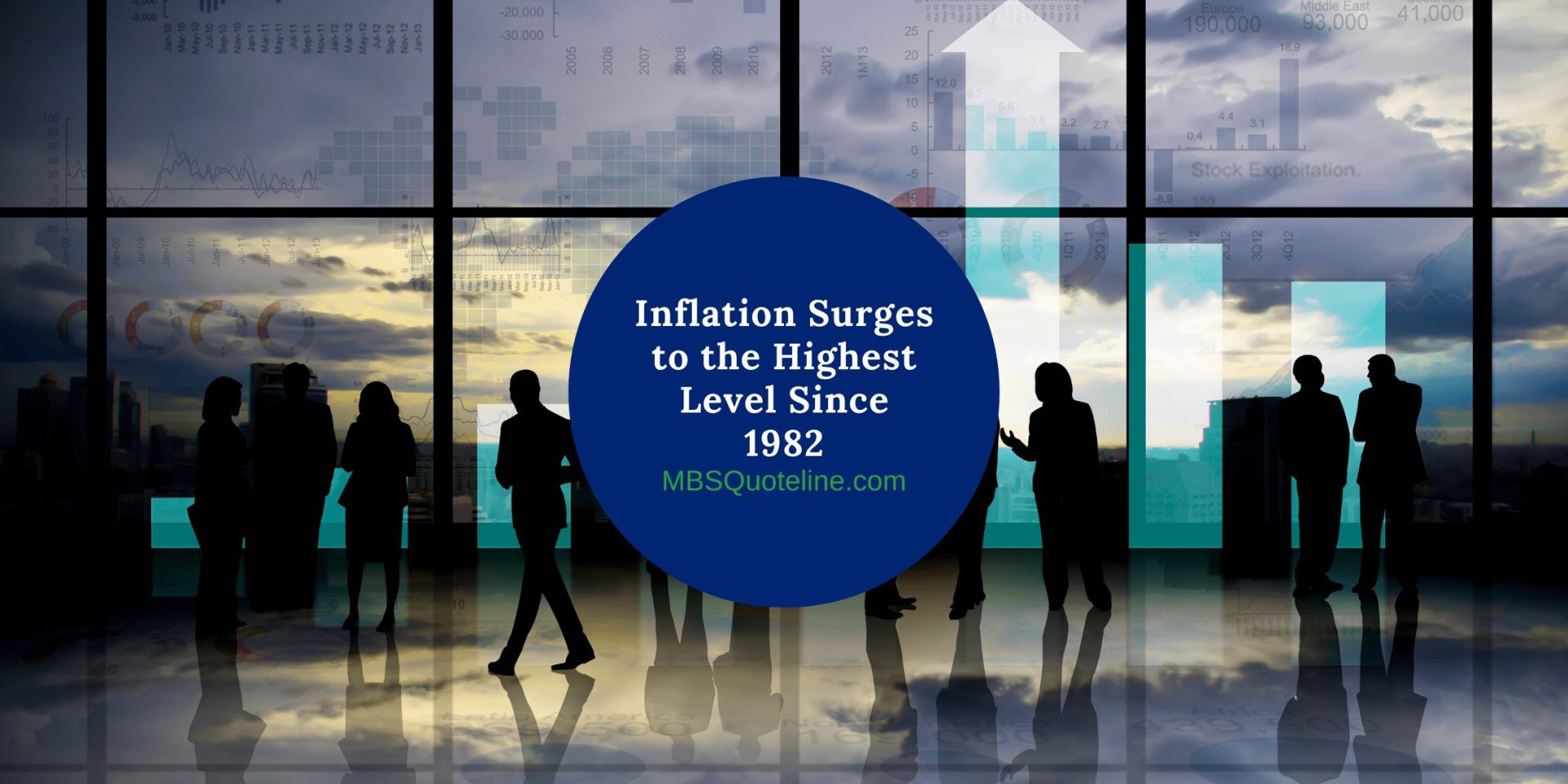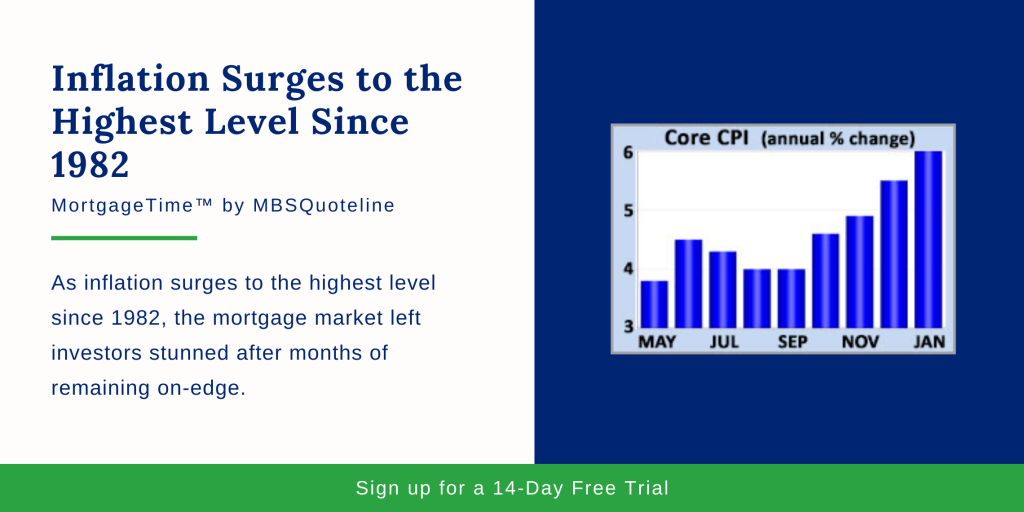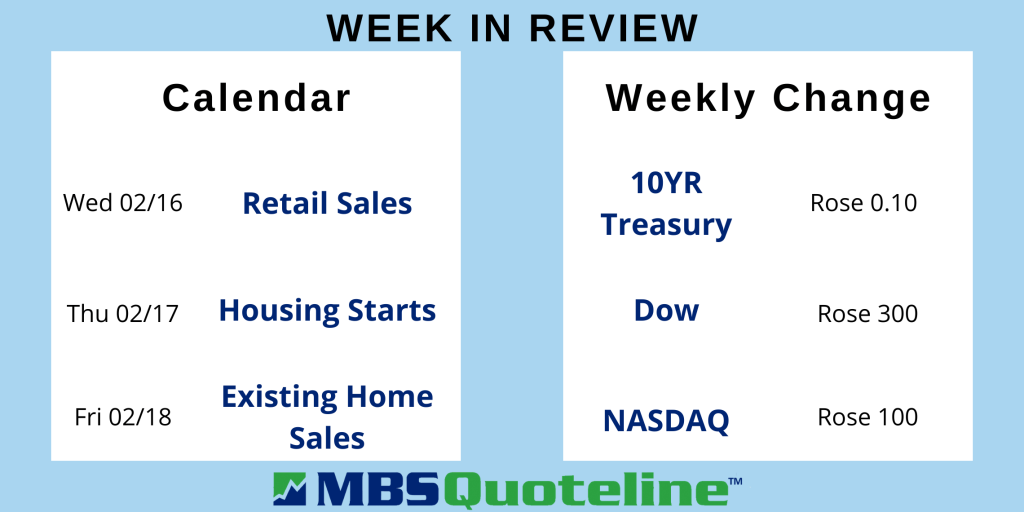As inflation surges to the highest level since 1982, the mortgage market left investors stunned. For months, investors remained on edge regarding the inflation rate. On Thursday, the latest Consumer Price Index report hit them with a powerful one-two punch.
First, the CPI inflation report soared even higher than expected. Next, the Federal Reserve a very rapid pace of rate hikes to bring down inflation. As a result, mortgage rates climbed to the highest levels in over two years. Additionally, mortgage rates skyrocketed over 100 basis points higher than a year ago at this time.
Inflation Surges with Latest Consumer Price Index Report
Investors closely watch the Consumer Price Index (CPI) report. As an inflation indicator, CPI looks at price changes for a broad range of goods and services. Core CPI excludes the volatile food and energy components and provides a clearer picture of the longer-term trend. In January, Core CPI rose 6.0% higher than a year ago as inflation surges. Not only is this above the consensus forecast and up from an annual rate of increase of 5.5% last month, Core CPI achieved its highest level since 1982.
There are many reasons why the annual core inflation rate has jumped from the readings below 2.0% seen early in 2021. These include a tight labor market, strong consumer demand for goods, rising energy prices, and supply chain disruptions. Also, the long-term supply shortages caused enormous cost increases. For instance, the price of used cars, climbed 41% higher than a year ago. Fed officials and economists remain divided about how much the recent spike in inflation will subside as temporary factors caused by the pandemic are resolved.
Federal Reserve Rapidly Tightening Monetary Policy
As inflation surges, investors raised their expectations for the pace of Fed tightening this year. Later that day, Federal Reserve official James Bullard hit investors with unexpectedly hawkish (in favor of tighter policy) comments. Bullard said that he would “like to see 100 basis points in the bag by July 1,” which would mean federal funds rate increases totaling a full point over the next three Fed meetings.
Investors again raised their outlook for the pace of rate hikes after the comments. Now, investors anticipate a 50-basis point increase instead of a 25 basis point increase at the next meeting on March 16th. Also, investors expect the Fed to scale back its bond purchase program more quickly. Since this will reduce demand for bonds, including mortgage-backed securities (MBS), mortgage rates rose on the news.
Looking Ahead After Inflation Surges to Highest Level Since 1982
After inflation surged to its highest level since 1982, investors look for additional guidance from the Federal Reserve regarding future rate hikes and its balance sheet reduction. Furthermore, investors continually monitor the status on the Omicron coronavirus variant.
Beyond that, Housing Starts come out on Thursday. Additionally, Existing Home Sales releases on Friday. Concurrently, the latest Retail Sales data also publishes on Friday. Because consumer spending accounts for over two-thirds of United States economic activity, the retail sales data indicates growth.
Following the CPI report, mortgage rates climbed to their highest levels in two years as inflation surges. Never miss an update with MBSQuoteline. To receive by-the-minute updates on mortgage-backed securities, try our platform free for 14 days.
Stay connected with MBSQuoteline on social media by following us on Facebook, Twitter, and LinkedIn.
All material Copyright © Ress No. 1, LTD (DBA MBSQuoteline) and may not be reproduced without permission. To learn more about the MortgageTime™ newsletter, please contact MBSQuoteline at 800.627.1077 or info@mbsquoteline.com.



